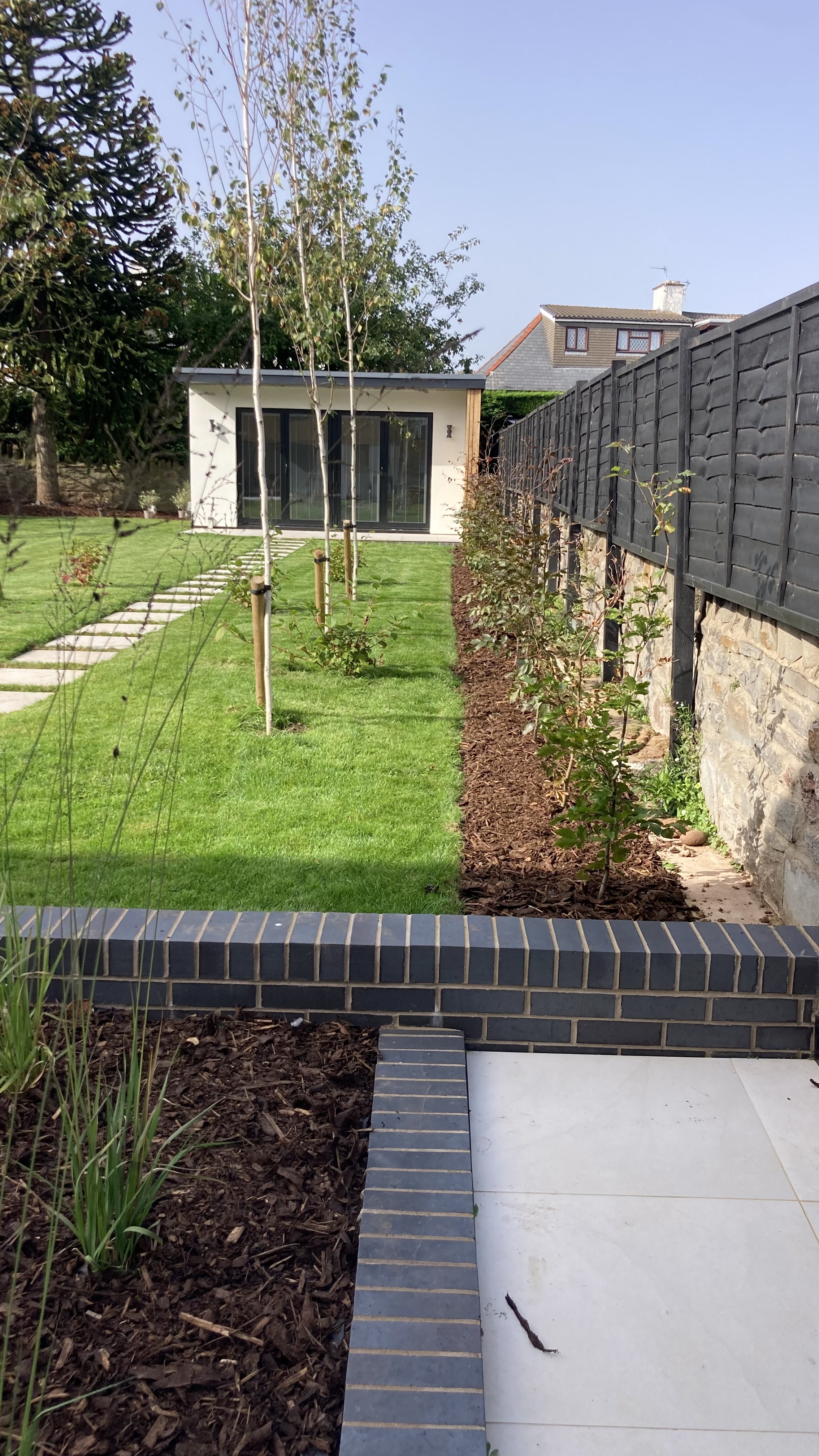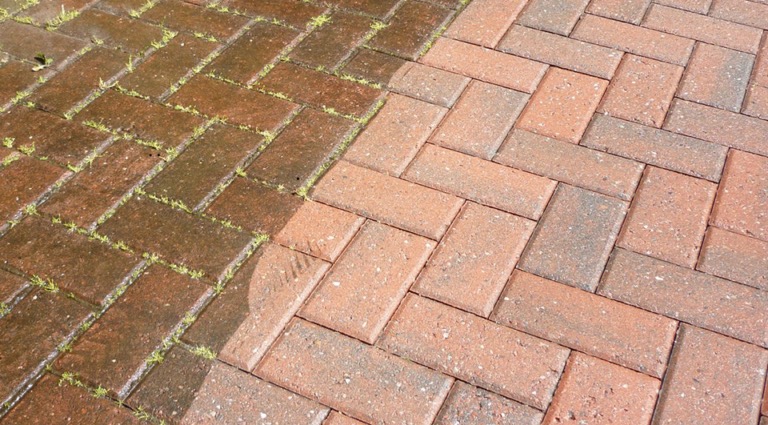Block Paving Cleaning and Sealing
|
First class garden care and maintenance services available all year round to maintain a garden you can enjoy Spring, Summer, Autumn & Winter. Please call me, text or call on 07889 123451 or email If it's out of hours I'll get back to you the following day. Mike Lyons |
 |
Block Paving Cleaning
We carry out block paving cleaning to -
- Kill unsightly moss and algae
- Clean the surface completely
- Remove all oil stains
Moss and algae treatments are applied to the surface before any work is started so that we can effectively clean block paving and 'see' the extent of cleaning that is necessary. We can then start the full procedure.
This is firstly achieved by using 'dirt splitting' solutions to break the soiling from the surface of your block paving, getting into all the porous elements of the concrete or clay pavers.
This releases the dirt which rises to the surface and is suspended for removal by power washing the paving or by dispersing with soft power washing depending on the severity of dirt.
Conventional power washing will sometimes drive soiling further into the surface making it difficult to remove and therefore is best lifted out gently for easy removal.
The last stage of the block paving cleaning process is to remove any oil on your block paving which might have leaked from vehicles. When the paving is clean, any areas affected by oil stains will be apparent and easy to remove.
Types of block paving
There are many types of block paving and differ in the materials used, these broadly are concrete, clay and stone.
The concrete products are mainly in the form of pavers or what we call 'block paving', these are interlocked and laid on a layer of sand or stone dust and compacted into place. Block paving cleaning releases all the dirt and stains that are visible and also by default will remove some of the sand jointing that holds the strength of the pavers.
Without the sand being in place, the block paving will move affecting the integrity of the surface, allowing the interlocking to weaken. Therefore whenever possible the jointing sand should be replaced, which is a simple process carried out when the paving has had time to fully dry.
Clay paving is similar in almost every way, except the blocks are fired to a high degree making them stronger in structure, more vivid in colour and less susceptible to staining, wear and tear.
The laying and bond strength is very similar, however, the clay products will retain their colour far longer than concrete which comes at a higher price. these are easier to clean and again need to be re sealed to retain their strength and long term life.
There are variations on both of the above but all produce a high quality wear and tear finish that lasts for decades. With regular cleaning and maintenance they can be regarded as one of the most desirable finishes and certainly represent good value for money.
Cobbles are not as common, certainly the older type but are now being reproduced by companies such as 'Marshall's' and other leading landscaping product suppliers. The older cobbles could have been jointed with mortar or tar, depending on the age and the fixing method employed on installation and normally you would expect cobbles to have a very long life.
Because of their cost would not be as common as other products on the market, nevertheless are one of the most desirable finishes within all types of paving.
All the above certainly benefit from block paving cleaning, which not only produces a nice fresh look but can also highlight any areas in need of repair or replacement, extending decades of appreciable wear.
Block Paving Sealing
On completion of the block paving cleaning process it will sometimes be necessary to re-sand the joints which stabilises the block paving retaining the strength and stability of your drive.
Kiln dried sand which is a very fine granular type, is swept into any open joints until 'full'.
A sealant can then be applied by spray or roller in two separate stages with a check on the compactness of the sand, which can be added to if necessary.
The finish will depend on personal choice as to whether you prefer a dry natural look or an enhanced finish which slightly darkens the block paving to heighten the colour.
Concrete block paving and clay blocks require specific sealants to penetrate the different surface types.
A drying period of a few hours is needed before walking on, allowing a full day before driving vehicles over your newly sealed drive.
Block Paving Aftercare
The sealed and clean block paving will be resilient to soiling and staining, moss and algae attack and any oil stains, however, to further protect the surface we will supply additional treatments to maintain your block paving, keeping it in pristine condition for many years.
We will contact you periodically for feedback and of course offer additional treatments for other areas that require our specialist tlc.
For a free survey and quotation anywhere in the areas of Cardiff, Penarth, Newport, Cwmbran & Chepstow (CF & NP) please contact us today.
Contact Us
Newport Landscaping
28, Harlech Drive, Newport NP10 8QS, Gwent, Wales
Tel: 07889 123451 (8am-6pm) (or send a text enquiry at any time)
Garden Care & Maintenance in Cardiff & Newport

